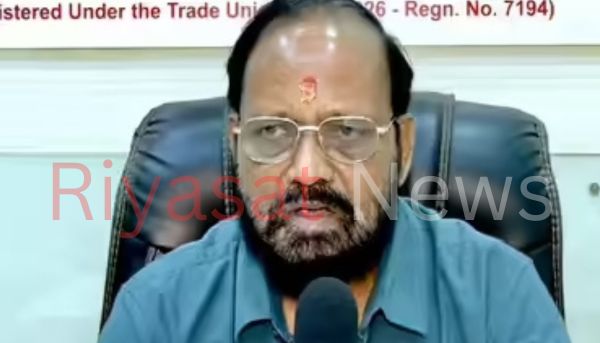
As the buzz around Sardaar Ji 3 intensifies, so does the controversy surrounding its release. In a recent statement, BN Tiwari, President of the Federation of Western India Cine Employees (FWICE), issued a stern reminder to the makers of the film — led by superstar Diljit Dosanjh — stressing the importance of abiding by Indian laws and industry regulations.
The third installment in the popular Sardaar Ji franchise has found itself at the center of a debate after speculations emerged that the film might be released internationally without a proper theatrical rollout in India. This has triggered concerns within various industry circles, with many questioning the motives behind bypassing the Indian audience, especially amid the sensitive socio-political climate.
BN Tiwari did not mince words. Speaking on behalf of the FWICE, one of India’s largest workers’ unions in the film and television sector, he expressed disappointment at the apparent disregard for protocol and the Indian film fraternity. “No production house, regardless of star power or commercial interests, is above the nation’s laws. If a film is made here, employing local talent and infrastructure, it must first and foremost respect the rights and sentiments of the Indian audience,” Tiwari stated firmly.
The controversy comes at a time when Sardaar Ji 3 has already drawn attention due to reports of its cross-border casting — particularly the inclusion of Pakistani actress Hania Aamir as the female lead. While fans of both countries welcomed the collaboration, critics argued that such partnerships should be navigated sensitively, especially considering existing tensions between the two nations.
Tiwari’s remarks are seen as a call for transparency, particularly in the way the film is distributed and marketed. According to him, if the film was shot, produced, or funded in any way from within India, its makers have a moral and legal responsibility to ensure it aligns with national interests and industry ethics. “We are not here to oppose creativity or art, but the industry cannot afford to ignore guidelines, especially when sentiments are involved,” he added.
While neither Diljit Dosanjh nor the production team has responded officially to Tiwari’s comments, insiders claim the team is evaluating the best course of action for the film’s release. Meanwhile, FWICE has hinted that if their concerns are ignored, they may consider more stringent measures, including formal complaints or calls to boycott the film’s local distribution partners.
This isn’t the first time a high-profile film has courted controversy over its release strategy. But the Sardaar Ji 3 row has reignited larger conversations about accountability in the entertainment industry, particularly when films with Indian roots are marketed more aggressively abroad than at home.
For now, all eyes remain on the makers of Sardaar Ji 3. Will they respond to the federation’s demand and clarify their position? Or will the controversy continue to cloud the film’s prospects in its home country?



